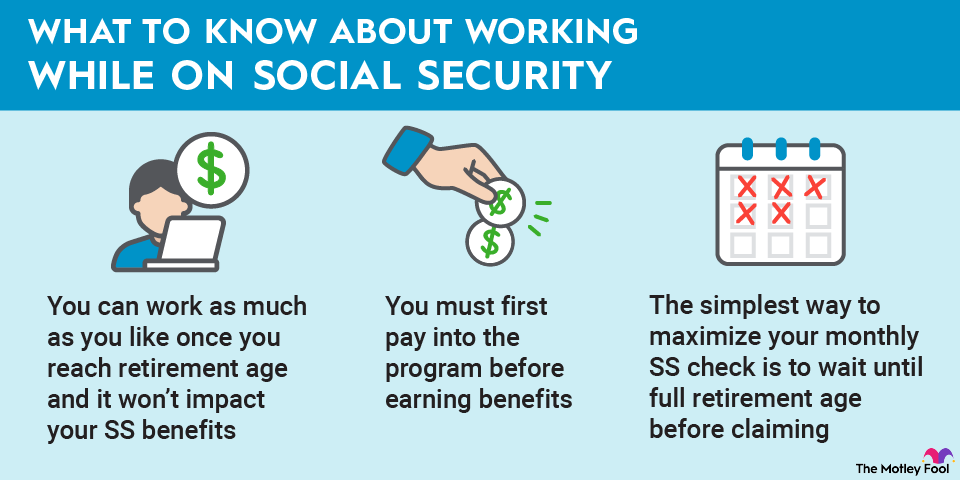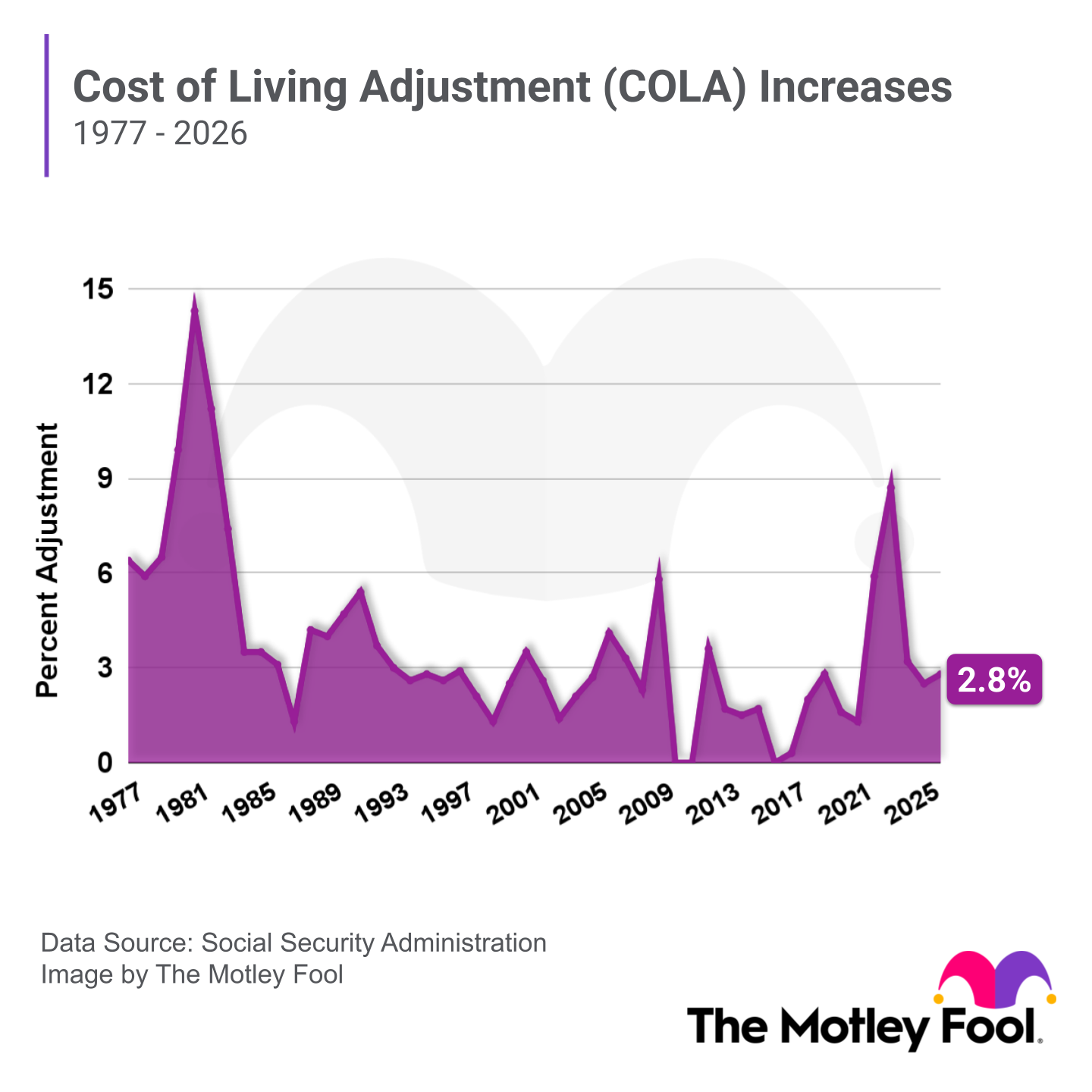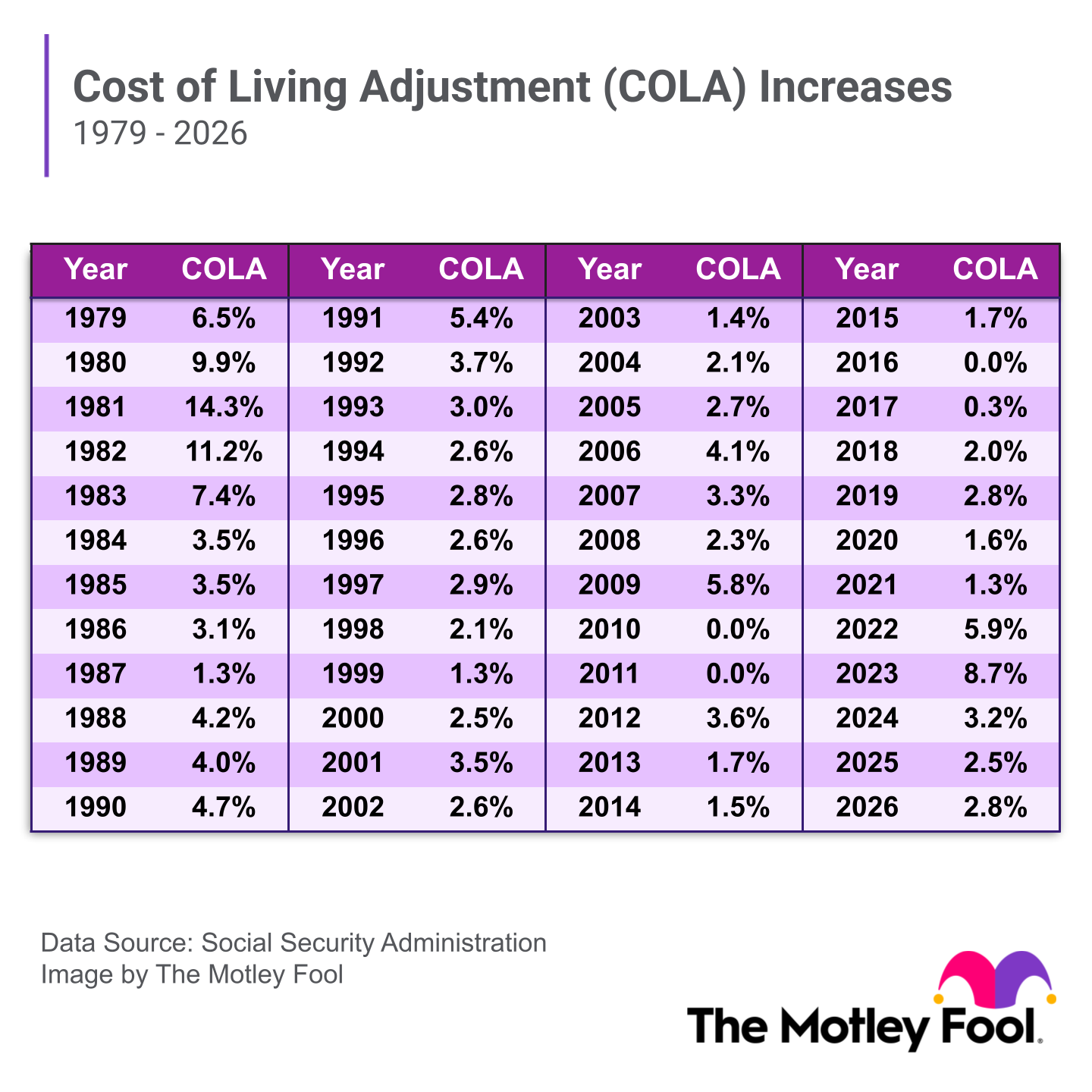If you will reach full retirement age after the current year, Social Security withholds $1 from benefits for every $2 earned above the annual limit, which was set at $23,400 in 2025 and is rising to $24,480 in 2026.
Finally, If you will reach full retirement age during the current year, Social Security withholds $1 from benefits for every $3 earned above the annual limit, which was set at $62,160 in 2025 and is rising to $65,160 in 2026. Only the months before you reach full retirement age are considered.
One important thing to know is that if any of your benefits are withheld because of your earnings, Social Security will recalculate your benefits once you reach full retirement age to give you credit for the months that your excess earnings caused benefits to be reduced or withheld.
An example of how this works
Here's an example of how this works.: You decided to file for benefits when you turned 62 in January 2025 and have earned a monthly benefit of $1,500. But you're still going to be working a bit, and you think your earnings will come to $25,000. That's $1,600 above the current limit, so Social Security would withhold $1 of every $2 over that amount, or $800.
Social Security would withhold your benefit payment in January to account for the difference (Note: The SSA does not withhold partial amounts of your monthly checks). Your $1,500 monthly benefit would begin in February, and you'd receive $700 back (because Social Security withheld $1,500 worth of benefits, rather than $800) the next year.











